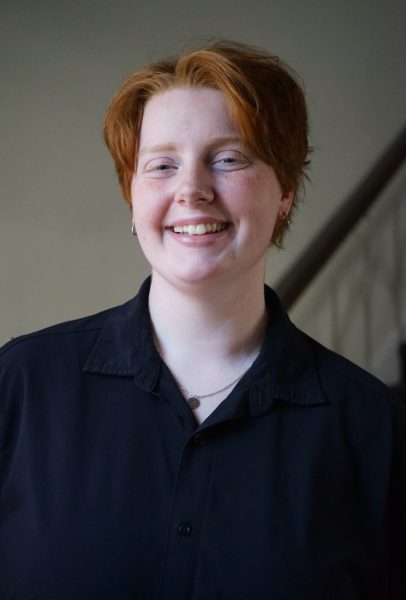Students, professor research relational turbulence in siblings
February 16, 2023
In his Communication Research Methods classes both last semester and this semester, Dr. Timothy Worley has conducted research with students on the topic of relational turbulence in siblings.
Each semester, Worley picks a topic that he thinks would be of interest for everyone in the class to learn about. He tries to parallel the concepts that the class is engaging in through research with what his students will learn and discuss in class.
Last semester, Worley’s class studied relational turbulence in siblings.
“Relational turbulence is a theory of communication that basically looks at why relationships get rocky from time to time,” said Worley. “What are the mental processes? What are some of the emotional processes and the communication processes that help to drive rough patches that we all hit in our relationships? Can you predict when a rough patch is coming?”
Most relational turbulence studies at this point have been done regarding romantic relationships, so Worley and his class thought it would be interesting to find out if the same theory holds true for sibling relationships.
“Anecdotally, it seems like siblings, a lot of times, deal with a lot of ups and downs,” Worley said. “They can be the people who are the nearest and dearest to you in your life, and they can also be the people who drive you the most crazy at the same time. We wanted to see if relational turbulence theory could help explain why siblings hit rough patches in their communication with each other.”
To conduct this study, students first read the literature surrounding the subject, and each group then created hypotheses and identified the variables they wished to measure. The students sent out a survey on their social media that asked participants questions regarding their relationships with their siblings and how, when and why those ties become strained.
The survey ended up getting around 800 responses, which Worley regards as very impressive for a study of this size.
“We ended up, with the data we collected, essentially being able to show that relational turbulence theory does a really good job of explaining why siblings hit rough patches in their relationships and their communication with each other,” Worley said. “It was really cool to see, because that’s mostly untapped area in our knowledge about family communication.”
Worley hopes that the study can help siblings predict times of turmoil in their relationships and be able to better navigate rough patches when they come about. He also wants those in the midst of relationship turbulence understand that what they are going through is normal and is not a sign of a fault in the relationship.
This semester, Worley is continuing the same line of research with his new class, wishing to uncover new findings that add onto the previous semester’s observations. After this two-step process, he hopes to publish the findings.
Worley’s mission for his class is to make students more confident in their research abilities and give them real-world skills for their future careers.
“I want students to actually have hands-on experience conducting research,” Worley said. “I think it helps bring the concepts to life for them and realize some of the complexities.”
Zach Hampton, a student in Worley’s class last semester, found the research process to be challenging but rewarding. He credits the success of the study and the results they were able to gather to having good people working beside him.
“I can’t reiterate this enough,” said Hampton. “If you have a good group of people that are willing to work with you and are patient with you, they will be able to teach you something. You have to learn to be teachable. I’m fortunate to have had really good teammates.”
Hampton’s group was primarily interested in the differences between turbulence among full, half, and step-siblings. He feels that the research topic is very relatable because most people have siblings and will therefore go through relational turbulence with them.
Caroline Conkle, another student who took Worley’s class last semester, found the observable variations in sibling dynamics to be very eye-opening. She also said that this research expanded her skillsets, both inside and outside of the classroom, as she made many friends through the process.
“It’s definitely very fun, but very challenging,” said Conkle. “It was something that I had never done before, and it allowed me to break out of my comfort zone a little bit.”
Both students credit Worley for the success of the study so far, saying that his help along the way was invaluable during the research process. They look forward to seeing what his class this semester finds to add onto their previous discoveries.
“I really commend [Dr. Worley] as a professor because he did a really great job last semester,” Hampton said. “I’m sure that his group this semester will be just as successful with their findings.”


